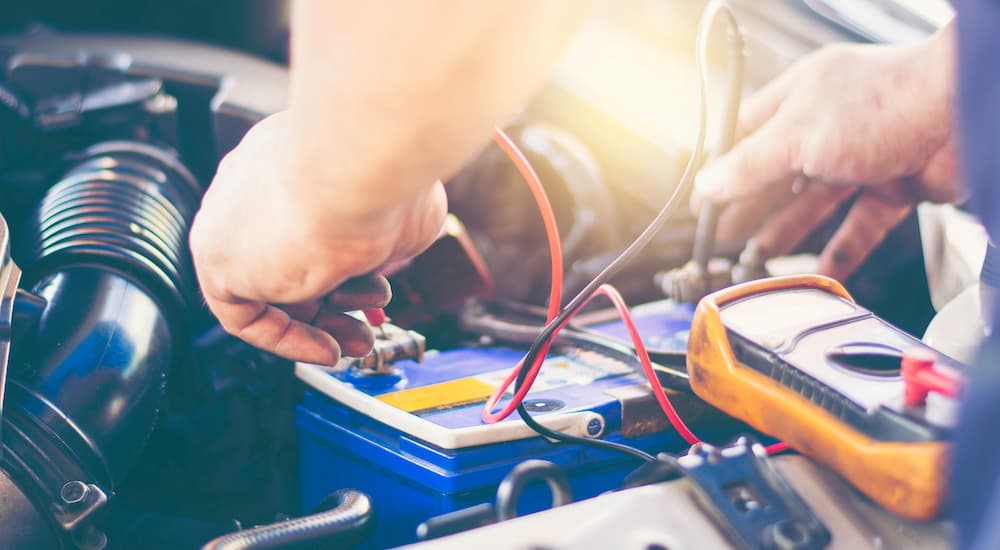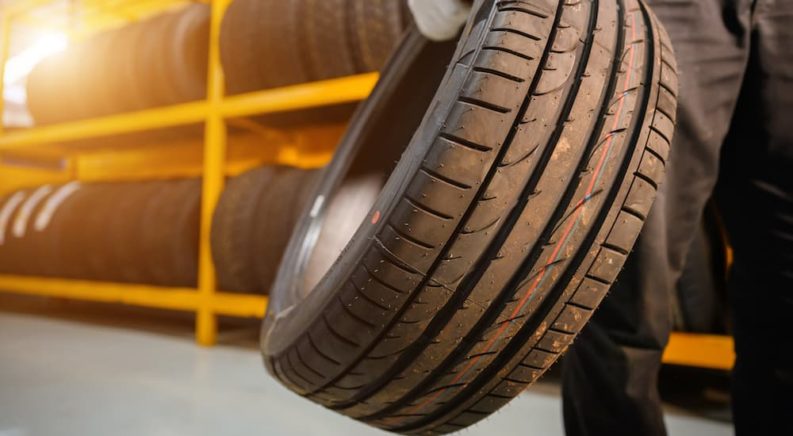Whether you’re new to working on your vehicle or you’ve been repairing cars for many years, we all struggle sometimes with knowing what to do with old parts after a repair or replacement job. It can be tempting to just toss an old tire into the trash, especially if it’s damaged, but you’re much better off taking it to a good tire shop near you or a local recycling center. The vast majority of items from your vehicle have a better destination than your trash can; some of them can even earn you a few bucks!
Today, I’m going to take you through some of the most common parts you probably end up with and are uncertain of what to do with. Please keep in mind that this can’t be exhaustive because there are simply too many different parts on a vehicle. It’s worth noting, however, that about 90% of a car can be recycled in one way or another. Plus, when all else fails and it’s time to move on to a new vehicle, you can take your entire old car to a scrap yard or donate it to a charity organization in your area. There’s no reason to just throw things away when there are better uses for them.
What to Do with Old Tires
There are lots of different things you can do with old tires that you’ve removed from your car—so many, in fact, that I’m going to start with what NOT to do. You should absolutely never just throw your tires away in the trash, or in your home’s recycling container. Don’t put your tires out at the curb for your local garbage service to pick up because they won’t; tires are a problem for landfills so they’re not accepted by waste management companies.
One of the best things you can do, if you don’t really have a use for tires otherwise, is to properly recycle them by taking them to a local tire-recycling facility in your area. There’s almost certainly a tire recycling center somewhere near you and they’ll happily take all tires that you have and don’t need. Although, it’s worth noting that you’ll probably need to pay them to take tires off your hands. That can seem like a hassle, but it’s worth it to ensure that your tires are used properly and recycled into a wide range of different products. This is also the reason that tire shops will charge you for disposing of your old tires; they have to pay recycling centers just like you do.
Another fantastic option for disposing of old tires is repurposing them for use around your home; there are guides for dozens of projects you can find online. There are obvious repurposes for them like building a tire swing in your backyard, but also a lot of possibilities that you might not think of immediately. You can easily create outdoor furniture, including seating, plant holders, and even storage containers using an old tire and a few other components. You can also use old tires to create obstacle courses, climbing areas for a playground, and more. Keep your children entertained and your tires out of landfills.

Don’t Throw Away Old Oil
Oil changes are one of the simplest bits of car maintenance that most of us can do at home. It’s quick and easy with only a few tools and little equipment necessary. The big question after changing your oil, however, is what to do with the old stuff you just drained out of your vehicle. What you absolutely DON’T want to do is just throw it away in a bottle or other container; it’s very easy for oil in a landfill to leak out into the ground and seep into your local water table, polluting and contaminating that water. In fact, according to the Environmental Protection Agency, the oil from a single oil change can pollute up to 1 million gallons of fresh water!
What you should do is properly bottle oil in a container that can safely hold it and then take it to your local auto shop or dealership that has proper disposal procedures. They’re not going to just throw it away. Instead, they’ll give it to a facility that can process the oil and clean it, allowing the motor oil to be used again. Some stations will even pay you for used oil since they can get money for it, too. If you’re not sure where to take your old oil, call your local auto parts store, service center, or recycling facilities and ask them who will take it and process it properly.
Other Common Car Parts You Can Recycle
The tires and oil aren’t the only parts from your car that can have a much better home than your trash can. In fact, many of these parts are worth some money to you. The best options for recycling include the following…
Car Battery
First off, I’m talking about conventional car batteries here, not the packs found in Battery-Electric Vehicles (BEVs); those can be recycled, but that’s a much more specialized process. Conventional car batteries are valuable and many facilities can recycle them. Pretty much everything in them is useful, from the plastic they’re made from to the battery acid inside of them. Call around to your local auto parts shops or dealerships to find out who will pay you for your old battery.

Catalytic Converter
You might not expect it, but the catalytic converter in your vehicle actually has some precious metals in it like platinum, which can be used to make jewelry and other items. You’ll need to find a local facility that’s equipped to extract this stuff, but if you do, then your old catalytic converter can be worth a decent amount of money (enough to help pay for a new one, at least).
Windshield/Windows
If you’ve ever had to pay to replace a cracked windshield, then I don’t have to tell you that glass is valuable. As long as the window hasn’t been completely smashed, old windshields and windows are worth a decent amount for recycling and for other uses. If you’re scrapping an older vehicle, intact windows and windshields are valued by many body shops and even local auto enthusiasts.
Starter and Alternator
You won’t get a lot of money for these items, but there is copper and steel in your alternator and starter, both of which are worth something. A local recycling facility or salvage yard is probably your best bet for selling these for a few bucks. If you have several parts to sell at once, then that’s perhaps the best way to make your trip worth it.
Body and Frame
When all else fails, the body and frame of your vehicle are worth a decent amount even as scrap metal. Iron, steel, and aluminum used in the construction of your car are all valuable. I’m not talking about a fortune here—more like a quarter- or half-dollar per pound of scrap metal—but it’s better than nothing. The value will depend on your make and model and what kind of materials it’s made from. Give your local scrap yard a call if you’ve got an entire vehicle that you want to get rid of and they’ll provide you with information on what it’s worth to them.

